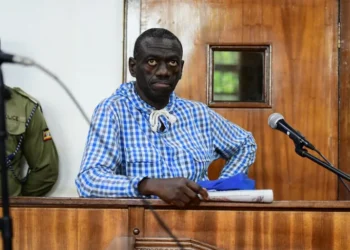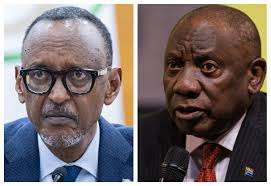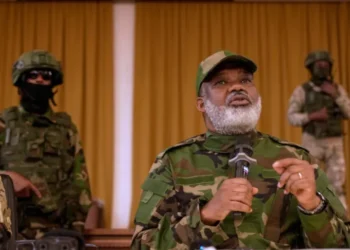Mali’s military government has dismissed Prime Minister Choguel Kokalla Maiga and his entire government, escalating tensions as the junta faces growing scrutiny over its indefinite postponement of elections.
The decree, issued by junta leader General Assimi Goita and broadcast on state television, comes days after Maiga publicly criticized the military’s handling of the country’s transition to civilian rule.
Maiga, 66, who was appointed in 2021 following a second coup, had been viewed as the civilian face of Mali’s pivot away from traditional Western allies, including France, toward closer ties with Russia. However, his relationship with the junta has soured in recent months.
Speaking at a rally Saturday, November 16, Maiga warned of “serious challenges and the risk of going backwards” as the military continues to delay elections.
He criticized the lack of transparency, saying, “The transition was supposed to end on 26 March 2024, but it has been postponed indefinitely, unilaterally, without debate within the government.”
Maiga further revealed that, as prime minister, he was not informed about the junta’s decision to delay the vote.
Rift Within the Leadership
Maiga’s increasingly critical stance put him at odds with pro-junta factions. A group called the Collective for the Defence of the Military labeled his remarks a betrayal and demanded his resignation within 72 hours.
Maiga’s dismissal had been anticipated, with speculation of a widening rift within the ruling elite since mid-2023.
In June, Maiga endorsed a document supporting a political figure who had been arrested for criticizing the military’s prolonged rule. This move, and his recent comments, intensified calls for his removal.
Maiga’s departure raises questions about the junta’s ability to manage the already fragile transition process. There is speculation he may become an opposition figure, potentially challenging the junta’s authority if and when elections are eventually held.
Military Rule Under Scrutiny
Mali’s junta, which came to power in two coups between 2020 and 2021, initially enjoyed popular support following public dissatisfaction with former President Ibrahim Boubacar Keita.

Widespread protests had decried corruption, economic instability, and mounting insecurity due to jihadist violence.
However, the military has struggled to contain Islamist insurgencies, despite ousting Western troops and relying on Russian paramilitary forces such as the Wagner Group.
In recent months, the junta’s inability to stabilize the country has fueled frustration among the population.
Adding to the challenges, Mali has faced increasing isolation on the international stage. The decision to indefinitely postpone elections and Maiga’s removal could further damage the junta’s credibility, both domestically and internationally.
The removal of Maiga underscores the junta’s tightening grip on power but also exposes cracks within its leadership. Political analysts suggest the move could backfire if Maiga, who has previously run for president, channels his dismissal into a campaign for the presidency.
Local and regional reactions to his removal have been mixed. Supporters of Maiga see him as a potential leader to challenge the junta, while critics accuse him of betraying the military regime.
Mali’s continued instability mirrors broader challenges across the Sahel region, where military coups in Burkina Faso and Niger have similarly disrupted democratic governance.
These nations, also grappling with jihadist violence, have turned to Russia for military support, further complicating their relationships with traditional allies.
While the junta has promised a transition to civilian rule, its repeated delays raise doubts about its intentions. The international community and Mali’s citizens await clarity on the next steps for the embattled nation.
READ ALSO: Barker-Vormawor Calls for Policy-Driven Solutions to Hawking





















